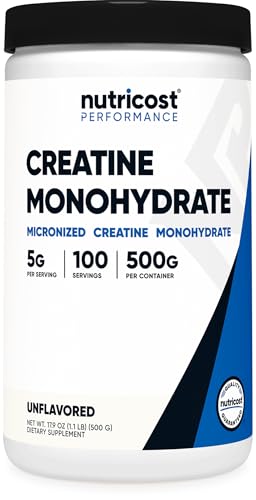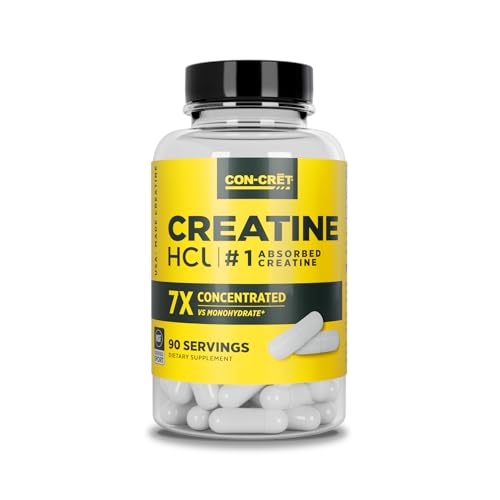Sleep deprivation drains the brain’s energy stores, leading to impaired cognitive function, slower reaction times, and diminished memory. Studies show that even one night without sleep can significantly reduce attention, processing speed, and short-term memory, leaving individuals struggling to perform at their best. Creatine is particularly relevant for travelers battling jet lag or professionals facing high-pressure, sleepless nights.
A groundbreaking study published in Scientific Reports (2024) investigated creatine’s effects on 15 healthy adults subjected to partial sleep deprivation. Participants received either a high dose of creatine (0.35 g/kg, approximately 25–30 grams for an average adult) or a placebo and were tested over an 8-hour period. The results were striking: those given creatine not only regained lost cognitive abilities but also showed improved processing speed compared to their baseline, fully rested state. This suggests creatine’s potential to counteract the mental sluggishness caused by sleep loss.
How Creatine Restores Brain Energy
The secret behind creatine’s cognitive benefits lies in its ability to replenish brain energy stores, particularly through phosphocreatine, a molecule critical for energy metabolism. During sleep deprivation, the brain’s energy reserves, including adenosine triphosphate (ATP), become depleted, impairing neuronal performance. Creatine acts as an energy reservoir, rapidly converting to phosphocreatine to supply ATP where it’s needed most.
The Scientific Reports study used neuroimaging (MRS)—specifically, magnetic resonance spectroscopy—to measure changes in brain metabolites. It found that a single high-dose creatine supplement increased total creatine (tCr) levels in the brain within 3.5 hours, stabilizing energy markers like phosphocreatine-to-inorganic phosphate (PCr/Pi) ratios. This rapid restoration of energy metabolism helped mitigate the metabolic stress of sleep deprivation, enabling sharper cognitive performance.
Creatine as a Nootropic: Enhancing Memory and Attention
Boosting Memory Enhancement Under Stress
Memory enhancement is one of creatine’s most exciting benefits, particularly for those facing cognitive strain. Sleep deprivation often impairs short-term and working memory, making tasks like recalling facts or solving problems feel impossible. However, creatine supplementation has shown promise in counteracting these deficits.
The Scientific Reports study reported improvements in tasks like the Word Memory Test and digit span tests after creatine administration, with effects peaking around 4 hours post-dose. Similarly, a 2024 meta-analysis published on PubMed analyzed 16 randomized controlled trials and found that creatine monohydrate significantly improved memory (standardized mean difference = 0.31) and attention time. These findings suggest that creatine could be a valuable nootropic for students, professionals, or anyone needing a mental edge during sleepless periods.
Applications for Jet Lag and Fatigue
For frequent travelers, jet lag is a familiar foe, disrupting sleep patterns and clouding mental clarity. The fatigue and cognitive haze it induces mirror the effects of sleep deprivation. Creatine’s ability to quickly restore brain energy makes it a potential ally for combating jet lag. By taking a high-dose supplement before or during travel, individuals may maintain sharper focus and faster reaction times, as evidenced by the improved processing speed in sleep-deprived subjects.
Beyond jet lag, creatine also reduces general fatigue, both mental and physical. The Scientific Reports study noted a significant reduction in fatigue scores among participants taking creatine, suggesting it could help sustain performance during prolonged wakefulness, such as for emergency workers or shift employees.
Nutricost Creatine Monohydrate Micronized Powder 500G, 5000mg Per Serv (5g) - 100 Servings, 17.9 Oz
High Quality Micronized Creatine Monohydrate
Get The Strength and Endurance You've Been Working For
500 Grams of Creatine Monohydrate Per Bottle
5 Grams Per Serving (Scoop Included)
Our Creatine Monohydrate provides you with an ultra premium quality product. Our customers love this pre and post-workout supplement as much as we do.
View on AmazonCreatine’s Broader Potential: From Alzheimer’s to Everyday Cognition
A Promising Aid for Alzheimer’s Disease
While creatine’s benefits for sleep deprivation are compelling, its potential extends to neurodegenerative conditions like Alzheimer’s disease. A pilot study at the University of Kansas Medical Center (2024) explored creatine supplementation in 19 Alzheimer’s patients, administering 20 grams daily for eight weeks. The results showed an 11% increase in brain creatine levels and moderate improvements in working memory and executive function. These findings, reported on the KU Medical Center website, highlight creatine’s role in supporting brain energy metabolism, which is often impaired in Alzheimer’s.
Although this study lacked a control group, it provides a strong rationale for larger trials. Creatine’s ability to enhance energy availability in the brain could offer hope for slowing cognitive decline in neurodegenerative diseases, making it a versatile supplement for brain health.
Creatine in Everyday Life: A Nootropic for All?
Beyond clinical settings, creatine is gaining attention as a daily cognitive enhancer. A BBC Future article (2025) notes that creatine, naturally found in meat and fish, may be insufficient in modern diets, particularly for vegans or those with low meat intake. The article cites research suggesting that low creatine levels could contribute to mood disorders or cognitive deficits, reinforcing its status as a potential nootropic. For individuals facing occasional fatigue or seeking to optimize mental performance, creatine supplementation could provide a safe, evidence-based boost.
However, the BBC piece cautions that high doses (like the 35 grams used in some studies) may cause side effects like stomach discomfort or water retention, particularly in those with kidney issues. Consulting a healthcare provider is essential before starting supplementation, especially at higher doses.
CON-CRET Creatine HCl Capsules | Muscle, Cognitive, Cellular Energy Support | No Bloating or Cramps | USA Made & NSF Certified | Creatine Pills (90 ct)
CON-CRĒT Creatine HCl (Creatine Hydrochloride) is 7X Concentrated vs Creatine Monohydrate. Provide cellular energy to all your cells to support Muscle Health, Cognitive Function, Immune Support, and Heart Health.
Creatine HCl with its superior solubility and absorption allows smaller doses while maintaining effectiveness and provides all the benefits of creatine without the negative side effects such as bloating, stomachaches, muscle cramps and water retention.
Creatine helps your cells function optimally with more energy. Think of creatine as a turbocharger for your cells, giving them more power when needed.
Creatine has been a trusted tool for athletes for decades, but it's advantages for way beyond the gym. Discover the benefits of this time tested supplement and elevate your everyday wellness. Discover the benefits of creatine for women and men alike.
CON-CRĒT Creatine is made in the USA at our SQF, GMP, NSF certified facility. We are committed to providing innovative and science-backed products every-body needs for optimal health and wellness.
View on AmazonPractical Considerations and Future Directions
How to Use Creatine for Cognitive Benefits
For those considering creatine to combat sleep deprivation or jet lag, a single high dose (25–30 grams) appears effective for short-term cognitive enhancement, as shown in the Scientific Reports study. However, for sustained benefits, lower daily doses (e.g., 5 grams) may be safer and more practical, as explored in the Alzheimer’s study. Always choose creatine monohydrate, the most researched form, and mix it with a beverage for easy consumption.
The Need for Further Research
While the evidence is promising, more research is needed to refine dosing protocols and confirm long-term effects. The PubMed meta-analysis rated the evidence for memory benefits as moderate but noted lower certainty for other cognitive domains, calling for larger trials. Future studies should also explore creatine’s effects across diverse populations, including women, older adults, and those with conditions like long COVID, as suggested by the BBC article.
Conclusion
Creatine is no longer just a bodybuilding staple—it’s a powerful ally for brain health, capable of rapidly reversing the cognitive impairments of sleep deprivation and enhancing cognitive function. By restoring brain energy through phosphocreatine, creatine helps combat fatigue, improve memory enhancement, and even shows promise for conditions like Alzheimer’s disease. Whether you’re battling jet lag, preparing for a high-stakes exam, or seeking a nootropic edge, creatine offers a scientifically backed solution. As research continues to uncover its potential, creatine may soon become a go-to supplement for anyone looking to stay sharp under pressure. Always consult a healthcare professional before starting supplementation to ensure it’s right for you.


